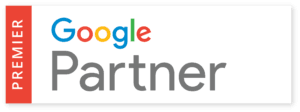Custom Web Portal Development FAQs
Learn about features, technologies, and strategies to design and develop a custom web portal effectively.
What is a custom web portal?
A custom web portal is a personalized website or platform designed to meet the specific needs of your business. It allows users to access various services or information securely, tailored to your business's requirements. A custom portal can improve user experience, streamline operations, and provide valuable insights, boosting efficiency and engagement.
How long does it take to develop a custom web portal?
The development time for a custom web portal varies based on the complexity of the project. Typically, it can take anywhere from 2 weeks to several months. Factors such as the number of features, integrations, design requirements, and testing phases influence the timeline. A clear project scope can help in estimating a more accurate time frame.
What features can I include in a custom web portal?
Features you can include in a custom web portal depend on your business needs. Common features are:
- User authentication and role-based access
- Data management and reporting tools
- Integrated payment gateway for e-commerce portals
- Real-time chat or support features
- Content management system (CMS)
- Custom dashboards for personalized data and analytics
- Secure document storage and sharing options
How much does it cost to build a custom web portal?
The cost of developing a custom web portal depends on factors like complexity, features, and design requirements. In India, a basic portal could start from ₹50,000 to ₹1,50,000, while more advanced and feature-rich portals could range from ₹2,00,000 to ₹10,00,000 or more. It's best to get a detailed estimate from a web development company based on your specific needs.
Can I integrate third-party services into my custom web portal?
Yes, custom web portals can be integrated with third-party services and APIs to enhance functionality. You can integrate payment gateways, CRM systems, marketing tools, social media platforms, and other business tools to improve user experience and streamline operations.
What is the difference between a custom web portal and a regular website?
A regular website typically provides general information to all users, whereas a custom web portal is designed for specific groups of users and often requires personalized login credentials. Custom portals offer more interactivity, access to data, secure transactions, and user-specific content or services, while websites are more static and general.
How secure is a custom web portal?
Security for a custom web portal is critical, especially if sensitive information is being exchanged. Best practices include using SSL certificates for secure data transmission, role-based access controls to manage user permissions, and integrating multi-factor authentication (MFA). Regular updates and vulnerability testing are also important to maintain security.
Do I need a custom web portal for my business?
If your business requires personalized user experiences, secure data management, or specific functionalities like client dashboards, customer portals, or team collaboration tools, then a custom web portal may be a good fit. A custom portal can enhance business operations, improve customer engagement, and streamline workflow by centralizing data and services in one place.
What are the benefits of a custom web portal over off-the-shelf solutions?
Custom web portals offer several benefits over pre-built solutions, including:
- Tailored features to meet your specific business needs
- Scalability to grow with your business
- Better security options for sensitive data
- Enhanced user experience with a personalized interface
- No limitations on integrations and functionality as with off-the-shelf solutions
Can a custom web portal be mobile-friendly?
Yes, custom web portals can be designed to be fully responsive, ensuring they work seamlessly on all devices, including smartphones and tablets. Mobile-friendly design is crucial for offering a positive user experience and increasing accessibility, especially as more users access portals from mobile devices.
Can I manage my custom web portal without technical knowledge?
Yes, you can manage and update your custom web portal without technical expertise if it includes a Content Management System (CMS). A CMS allows you to easily add, edit, or remove content, images, and data through a user-friendly interface. Many custom portals are designed with non-technical users in mind for simple management tasks.
Can I make sure that my custom web portal is SEO-friendly?
Yes, a custom web portal can be developed with SEO best practices in mind. Features like clean URLs, mobile responsiveness, fast loading speeds, and optimized content can be integrated into the design. Additionally, incorporating SEO tools and meta tags ensures the portal ranks well in search engine results.
Can I integrate payment gateways into my custom web portal?
Yes, payment gateways like Razorpay, PayPal, and Stripe can be seamlessly integrated into your custom web portal. This allows for secure online transactions, subscription models, or e-commerce features, providing a smooth payment experience for your customers.
Can I track user activity on my custom web portal?
Yes, user activity tracking can be implemented using analytics tools like Google Analytics or custom-built tracking features. You can track actions like login activity, page views, clicks, and transactions, helping you understand user behavior and improve the portal's functionality.
Can I add multi-language support to my custom web portal?
Yes, you can integrate multi-language support into your custom web portal to cater to international audiences or different regions within India. This can be done by adding a language switcher, allowing users to choose their preferred language for better accessibility.
How do I ensure that my custom web portal is scalable?
To ensure scalability, your web portal should be built with a flexible infrastructure that can handle increased traffic and data. Using a cloud-based hosting solution, modular architecture, and efficient coding practices will allow the portal to scale easily as your business grows.
Can I update the design of my custom web portal later?
Yes, a custom web portal can be redesigned or updated at any time. You can add new features, improve the UI/UX, or change the layout to better suit your business needs or user preferences. Ongoing maintenance and periodic redesigns help keep the portal up to date with changing trends and technology.
What is the difference between a web portal and a web application?
A web portal is typically a centralized platform that provides users with access to a variety of services, information, or tools. A web application, on the other hand, is a software program that runs on a web browser and is typically used for specific tasks or functionality, like invoicing or project management. Both can be integrated, depending on your business needs.
Can I customize the user interface (UI) of my web portal?
Yes, you can fully customize the user interface (UI) of your web portal to match your business branding, including logos, color schemes, and design elements. A unique and visually appealing UI enhances user experience and reinforces your brand identity.
Will my custom web portal be mobile-friendly?
Yes, your custom web portal can be designed to be mobile-responsive, ensuring it adapts and functions well on smartphones and tablets. A mobile-friendly portal improves user experience and engagement, as more people access websites through their mobile devices nowadays.
OrgoDigital represents a seamless fusion of “Organic” and “Digital” growth in the realms of technology and digital marketing. From crafting dynamic websites and high-performing apps to implementing data-driven marketing strategies, we focus on creating sustainable growth while delivering exceptional value to our clients.
Our Services
Contact Us
Useful Links
©2024. Orgo Digital. All Rights Reserved.



